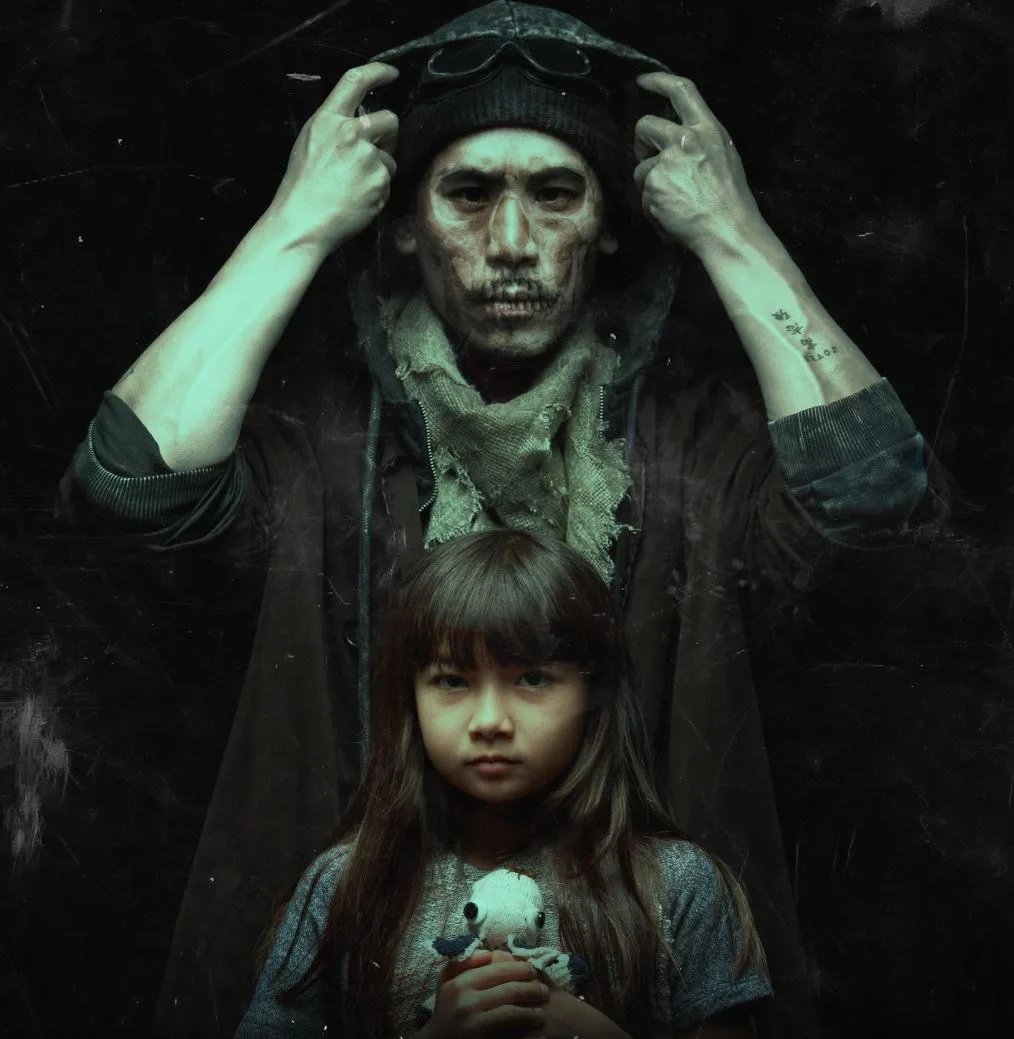
In the opening scenes of Ba (2024), the presence of a strange, hooded figure making its way into a hospital ward is clearly, strongly reminiscent of Grim Reaper folklore. It’s a fair first impression, borne out by what follows – but in its own mythology-building and the careful ways it humanises its main characters, Ba is much more than a re-tread of tried-and-tested subject matter. It takes a trope, a well-established set of beliefs and does more than enough with these to make the film as a whole feel fresh and worthwhile.
We move back six months earlier: father Daniel (Lawrence Kao) and daughter Colette (Kai Cech) are driving and chatting, seemingly happily. But it’s not long until we see that this is bluster: they’re homeless, and they were hoping to stay with a friend, but that falls through, too. They have to change their plans: dad tries to keep things upbeat, but staying overnight in a parking lot with your child? It’s not ideal, to say the least.
The situation shifts. When Daniel finds an abandoned bag in the parking lot, he is curious enough to open it. Inside, he finds cash – lots of cash – and a note. It tells the reader that if they take the payment, then it’ll be considered a sign-up to the ‘eternal profession’. For now, that sounds scarier than it does tempting, but you know Daniel won’t be able to hold out for long. He loves his daughter, he’s a single parent and he wants to provide for her (the ‘Ba’ of the title is a version of ‘Pa’). The next day, Ba goes back to the bag – still there, still untouched – and this time, he takes the cash. The contract is now sealed.
As the film progresses, we get glimpses of all of the things which have brought father and daughter to this point, providing a picture of a family beset on all sides by recognisable, realistic problems. This is important, because to believe in the supernatural turn of events, you need characters with plausible backstories. It’s a lesson many indie filmmakers could stand to learn. We see just enough of the injuries (Daniel is, or was a pro dancer), the health conditions, the family schism, the eviction notice which have led to the parking lot: it isn’t overwritten, but it helps significantly to generate pathos for both of these people. The film’s spin on the idea of Death personified turns death itself into a shady, underground industry of sorts and it’s surprisingly effective: in this universe, and I can’t help but think of these ideas as a kind of horror shadow to some of Terry Pratchett’s best work, the Grim Reaper works as part of a conglomerate, not dead but not alive in the normal sense, with a job role and a contract which has workplace stipulations. Fulfil your contract, and you can quit – if you do things to the letter. Of course, roles and responsibilities like this have quite a lot riding on them, with much that could go wrong. Beyond this idea, Ba can be read as a critique of the whole idea of indentured labour – particularly given that we have an immigrant single father here, already pushed to the margins of society with a pre-existing array of very tough decisions to make.
For all its fantasy components, however, Ba isn’t an especially complex film; it does enough, it has great ideas, it utilises subtle effects, but it’s the touching details and strong performances which truly carry it. It also adds in new characters and stories very carefully, with only one exception (a villain arrives, misbehaves and departs at twice the speed of anyone else). However, misfires here are so infrequent as to be easily overlooked. Ba is a richly colourful, well-framed and visually appealing film, and it’s equally gratifying that writer/director Benjamin Wong and his team haven’t succumbed to the frequent indie temptation to push the film to a much longer runtime because they couldn’t bear to part with any footage. The runtime we have – an economical 75 minutes – is more than suitable for the story at hand. Ba is a supernatural tale, sure, but it works as well as it does because of the loving – if damaged – family at its heart.
Ba (2024) is now available digitally in the US.
